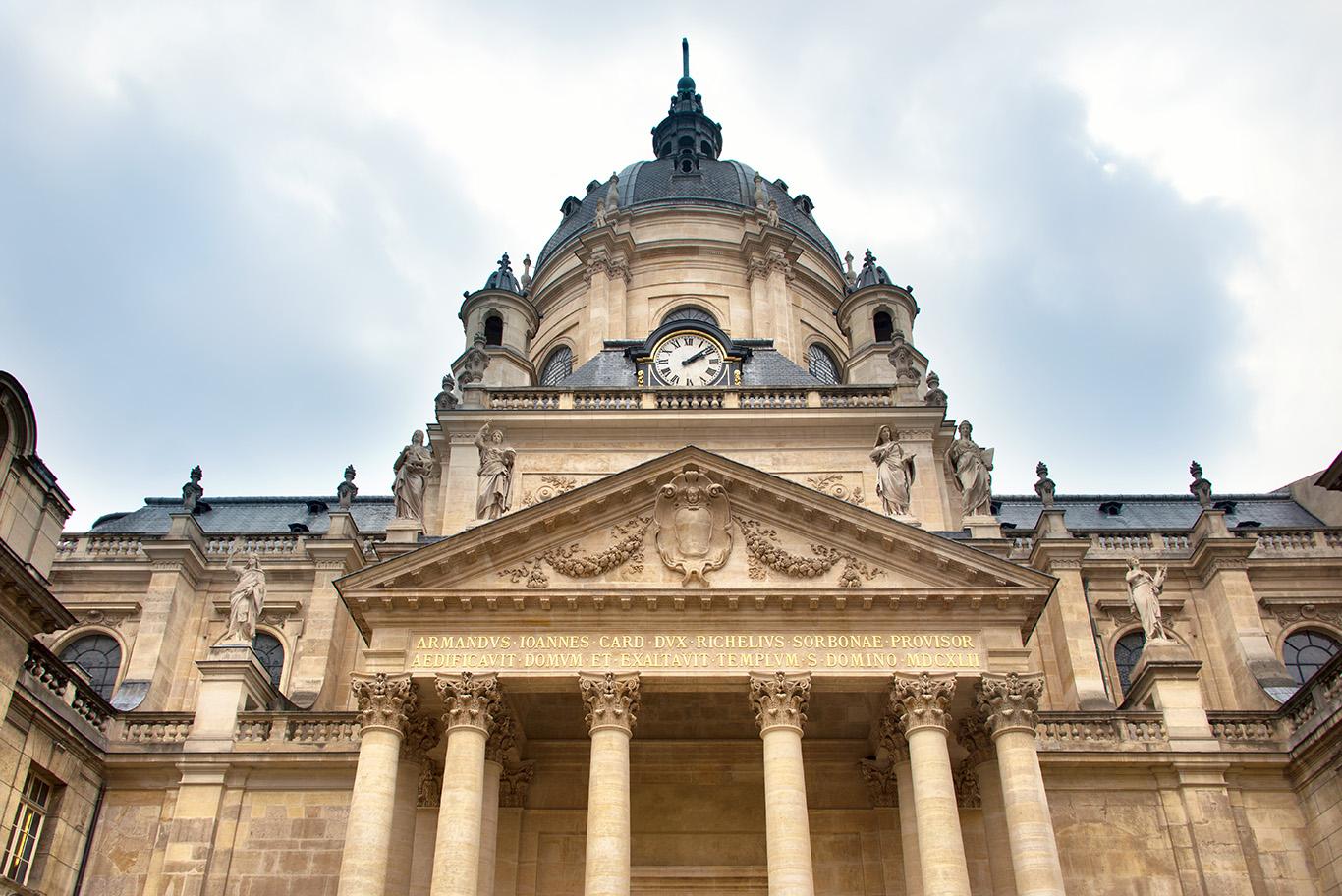
History & strategy
Founded in 1868, the École Pratique des Hautes Études occupies a unique place in higher education and research. It stands out for its very high level of scholarship and its pedagogy of research training through practice.
"What was lacking, and what Duruy wanted, was for a great experimenter to be able to involve students with his research in the laboratory; there, in fact, participation in the common work is more instructive than a monologue in the pulpit. Such is the idea that suggested the creation of a practical school; the word practical, in this title, is an essential element."
Louis Havet, President of the Historical and Philological Sciences Section, 1912-1925.
The history of a unique pedagogical approach
On 31 July 1868, the Minister of Public Instruction, Victor Duruy, a historian specializing in antiquity and close to Emperor Napoleon III, promulgated the decree that established the École Pratique des Hautes Études (EPHE). The first article stipulates that the aim of the EPHE is "to place alongside theoretical teaching the exercises that can strengthen and extend it." EPHE promoted practical methods of training in research—in its experimental laboratories as much as in its seminars—to compensate for the conformism of higher education of the time and to reinvigorate the link between training and research.
Convinced by this unique pedagogical approach, many renowned scholars, taught at the EPHE or worked in its laboratories: Émile Benveniste, Fernand Braudel, Claude Bernard, Marcellin Berthelot, Paul Broca, Georges Dumézil, Sylvain Lévi, Claude Lévi-Strauss, Étienne-Jules Marey, Gaston Maspero, Louis Massignon, Marcel Mauss, Henri Moissan, Gabriel Monod, Gaston Paris, Louis Pasteur, Henri Poincaré, Lucie Randoin, Germaine Rouillard, Émile Roux, Ferdinand de Saussure, and Germaine Tillion.
Although the applied research approach has become common, the EPHE has continued to practice this precept, both in the experimental sciences and in the humanities: the choice of teaching based on "research in the making" continues to prevail.
During the fiftieth anniversary of the École in 1922, delayed because of the First World War, the President of the Republic, Alexandre Millerand, said: "The École Pratique des Hautes Études has justified its creation by its services and its results. It honors France and science. As we bow to its past, let us salute with respect and confidence the free grouping of its masters and their disciplines, the strength and hope of our country."
Today, the EPHE offers research training through applied research in its three sections: Life and Earth Sciences (SVT), Historical and Philological Sciences (SHP) and Religious Sciences (SR), in Paris, in the provinces and in French Polynesia. EPHE teaching is provided at the master's and doctoral levels, but in keeping with the spirit of its foundation, it continues to deliver an institutional diploma that does not require an undergraduate degree for admission.
Internationally recognized cutting-edge research and training
Globally recognized for the erudition of its faculty and its rare disciplines, the EPHE illuminates civilization—whether endangered or emerging—from all their angles, through disciplines as varied as history, philology, archaeology, art history, linguistics, and the study of the world's religions, from antiquity to the present day. For example, the EPHE is the only French institution offering training in all ancient scripts and languages, or in all fields of Mediterranean antiquity and its cultural areas. These advanced disciplines are supported by a very high level of teaching in Latin, Byzantine, and Hebrew paleography, in the history of science, in cultural and intellectual history, in representations of space, diplomacy, linguistics, numismatics, hagiography, images and emblems. In the life and earth sciences, the teaching emphasizes practical work and fieldwork in fields such as biology and health, neuroscience, ecology, anthropology, the environment and evolution.
Constantly evolving in line with the challenges of society
The EPHE is constantly adapting to evolving academic landscapes with, for example, the development of digital humanities or cognitive sciences, as well as responses to major social issue (including ethics, secularism, and religion).
The EPHE pays particular attention to contributing to civil society. This is evident in the institution's open-door policy for free auditors, who have been taking courses for more than 150 years. In addition, the EPHE's three institutes contribute to public discussions on aging, coral reefs, rare languages, and the teaching of religious facts and secularism.
In recent years, the EPHE has introduced two significant changes.
- First, the EPHE joined the Paris Sciences & Lettres (PSL) University as a component institution alongside other prestigious academic institutions. Located in the heart of Paris, PSL University, ranked among the top 50 universities in the world, brings together all fields of knowledge, innovation and creation.
- Second, the EPHE is a founding member of Campus Condorcet, a city of humanities and social sciences being built in Aubervilliers, where the EPHE's future headquarters is currently being constructed. Alongside 10 other institutions, the EPHE is building an international campus to meet the educational, scientific and digital challenges of the 21st century.